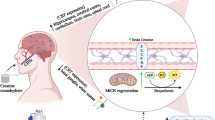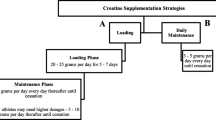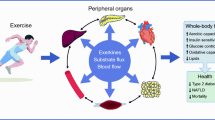Abstract
Dietary supplementation with methionine and threonine spares body protein in rats fed a low protein diet, but the effect is not observed for other essential amino acids. Although the requirement for sulfur amino acids is relatively high in rodents, the precise mechanisms underlying protein retention are not fully understood. The aim of this study was to explore whether the activation of mammalian target of rapamycin complex 1 (mTORC1) downstream factors in skeletal muscle by supplementation with threonine and/or methionine contributes to protein retention under sufficient cystine requirement. Male Sprague–Dawley rats were freely fed a 0% protein diet for 2 weeks. These experimental rats were then fed a restricted diet (14.5 g/day) containing 12% soy protein supplemented with both cystine and, methionine and threonine (MT), methionine (M), threonine (T), or neither (NA) (n = 8) for an additional 12 days. Two additional groups were freely fed a diet containing 0% protein or 20% casein as controls (n = 6). Body weight and gastrocnemius muscle weight were higher, and blood urea nitrogen and urinary nitrogen excretion were lower, in the M and MT groups than in the T and NA groups, respectively. p70 S6 kinase 1 abundance was higher, and eukaryotic translation initiation factor 4E-binding protein 1 abundance and mRNA levels were lower, in the skeletal muscles of the M and MT groups. These results suggest that methionine regulates mTORC1 downstream factors in skeletal muscle, leading to spare body protein in rats fed a low protein diet meeting cystine requirements.





Similar content being viewed by others
Data availability statement
The datasets generated and/or analyzed during the current study are available from the corresponding author on reasonable request.
References
Anthony JC et al (2000) Leucine stimulates translation initiation in skeletal muscle of postabsorptive rats via a rapamycin-sensitive pathway. J Nutr 130(10):2413–2419. https://doi.org/10.1093/jn/130.10.2413
Anthony JC et al (2002) Orally administered leucine enhances protein synthesis in skeletal muscle of diabetic rats in the absence of increases in 4E-BP1 or S6K1 phosphorylation. Diabetes 51:928–936. https://doi.org/10.2337/diabetes.51.4.928
Belghit I et al (2014) Dietary methionine availability affects the main factors involved in muscle protein turnover in rainbow trout (Oncorhynchus mykiss). Br J Nutr 112(4):493–503. https://doi.org/10.1017/S0007114514001226
Felipo V et al (1991) Control of urea synthesis and ammonia utilization in protein deprivation and refeeding. Arch Biochem Biophys 285(2):351–356. https://doi.org/10.1016/0003-9861(91)90371-o
Gu X et al (2017) SAMTOR is an S-adenosylmethionine sensor for the mTORC1 pathway. Science 358(6364):813–818. https://doi.org/10.1126/science.aao3265
Hara K et al (1998) Amino acid sufficiency and mTOR regulate p70 S6 kinase and eIF-4E BP1 through a common effector mechanism. J Biol Chem 273(23):14484–14494. https://doi.org/10.1074/jbc.273.23.14484
Humeniuk VV, Robak VI (1978) High-sulfur protein subunits in keratins. Ukrainskij Biohimičeskij Žurnal 65(6):3–10
Kitada M et al (2020) Mechanism of activation of mechanistic target of rapamycin complex 1 by methionine front. Cell Dev Biol 8:715. https://doi.org/10.3389/fcell.2020.00715
Lauinger L, Kaiser P (2021) Sensing and signaling of methionine metabolism metabolites. Metabolites 11(2):83. https://doi.org/10.3390/metabo11020083
Marín-García PJ et al (2022) Urea nitrogen metabolite can contribute to implementing the ideal protein concept in monogastric animals. Animals (Basel) 12(18):2344. https://doi.org/10.3390/ani12182344
Marshall RC, Gillespie JM (1976a) High-sulphur proteins from alpha-keratins. I. Heterogeneity of the proteins from mouse hair. Aust J Biol Sci 29(1–2):1–10 (PMID: 962716)
Marshall RC, Gillespie JM (1976b) High-sulphur proteins from alpha-keratins. II. Isolation and partial characterization of purified components from mouse hair. Aust J Biol Sci 29(1–2):11–20
Martínez Y et al (2017) The role of methionine on metabolism, oxidative stress, and diseases. Amino Acids 49(12):2091–2098. https://doi.org/10.1007/s00726-017-2494-2
Mieulet V et al (2007) S6 kinase inactivation impairs growth and translational target phosphorylation in muscle cells maintaining proper regulation of protein turnover. Am J Physiol Cell Physiol 293(2):C712-722. https://doi.org/10.1152/ajpcell.00499.2006
Nichenametla SN et al (2018) Sulfur amino acid restriction-induced changes in redox-sensitive proteins are associated with slow protein synthesis rates. Ann N Y Acad Sci 1418(1):80–94. https://doi.org/10.1111/nyas.13556
Pende M et al (2004) S6K1(−/−)/S6K2(−/−) mice exhibit perinatal lethality and rapamycin-sensitive 5′-terminal oligopyrimidine mRNA translation and reveal a mitogen-activated protein kinase-dependent S6 kinase pathway. Mol Cell Biol 24(8):3112–3124. https://doi.org/10.1128/MCB.24.8.3112-3124.2004
Powell BC et al (1991) Regulation of keratin gene expression in hair follicle differentiation. Ann N Y Acad Sci 642:1–20. https://doi.org/10.1111/j.1749-6632.1991.tb24376.x
Reeves PG et al (1993) AIN-93 purified diets for laboratory rodents: final report of the American Institute of Nutrition ad hoc writing committee on the reformulation of the AIN-76A rodent diet. J Nutr 123(11):1939–1951. https://doi.org/10.1093/jn/123.11.1939
Rintz E et al (2022) Activities of (poly) phenolic antioxidants and other natural autophagy modulators in the treatment of sanfilippo disease: remarkable efficacy of resveratrol in cellular and animal models. Neurotherapeutics. https://doi.org/10.1007/s13311-022-01323-7
Sbodio JI et al (2019) Regulators of the transsulfuration pathway. Br J Pharmacol 176:583–593. https://doi.org/10.1111/bph.14446
Shimbo K et al (2010) Automated precolumn derivatization system for analyzing physiological amino acids by liquid chromatography/mass spectrometry. Biomed Chromatogr 24(7):683–691. https://doi.org/10.1002/bmc.1346
Stockland WL et al (1973) Influence of levels of methionine and cystine on the total sulfur amino acid requirement of the growing rat. J Anim Sci 36(3):526–530. https://doi.org/10.2527/jas1973.363526x
Tehlivets O et al (2013) S-Adenosyl-l-homocysteine hydrolase and methylation disorders: yeast as a model system. Biochim Biophys Acta 1832(1):204–215. https://doi.org/10.1016/j.bbadis.2012.09.007
Yokogoshi H, Yoshida A (1976) Some factors affecting the nitrogen sparing action of methionine and threonine in rats fed a protein free diet. J Nutr 106(1):48–57. https://doi.org/10.1093/jn/106.1.48
Yokogoshi H, Yoshida A (1979) Effect of supplementation of methionine and threonine on hepatic polyribosome profile in rats meal-fed a protein-free diet. J Nutr 109(1):148–154. https://doi.org/10.1093/jn/109.1.148
Yokogoshi H et al (1977) Effect of supplementation of methionine and threonine to a protein free diet on urinary excretion of nitrogen and tissue free amino acids in rats. J Nutr 107(5):783–791. https://doi.org/10.1093/jn/107.5.783
Yoshida A et al (1957) Effects of protein per calorie ratio and dietary level of fat on calorie and protein utilization. J Nutr 63(4):555–570. https://doi.org/10.1093/jn/63.4.555
Yoshizawa F et al (2001) Time course of leucine-induced 4E-BP1 and S6K1 phosphorylation in the liver and skeletal muscle of rats. J Nutr Sci Vitaminol 47:311–315. https://doi.org/10.3177/jnsv.47.311
Acknowledgements
We are grateful to Dr. K. Yagasaki and Dr. H. Oda (Nagoya University) for helpful insights and suggestions, and A. Nagahama and K. Suzuki for performing the LC/MS analysis. We thank all members of the Medical Foods Research Institute.
Funding
Not applicable.
Author information
Authors and Affiliations
Contributions
All authors conceived the idea of the study. FY and IY developed the outline for the statistical analysis and conducted the statistical analyses. All authors contributed to the acquisition and analysis of the data and the interpretation of the results. FY drafted the original manuscript. IY reviewed the manuscript draft and revised it critically for intellectual content. All authors approved the final version of the manuscript to be published.
Corresponding author
Ethics declarations
Conflict of interest
None declared except that all authors are employed by Otsuka Pharmaceutical Factory, Inc.
Ethical standards
All animals were treated in accordance with the guidelines established by the Animal Care and Use Committee of Otsuka Pharmaceutical Factory, Inc. (Tokushima, Japan). The experimental protocol was approved by the Animal Experimentation Committee of Otsuka Pharmaceutical Factory, Inc.
Additional information
Handling editor: H. Jakubowski.
Publisher's Note
Springer Nature remains neutral with regard to jurisdictional claims in published maps and institutional affiliations.
Rights and permissions
Springer Nature or its licensor (e.g. a society or other partner) holds exclusive rights to this article under a publishing agreement with the author(s) or other rightsholder(s); author self-archiving of the accepted manuscript version of this article is solely governed by the terms of such publishing agreement and applicable law.
About this article
Cite this article
Yamada, F., Mori, E. & Yamaoka, I. Methionine supplementation spares body protein by regulating the expression of mTORC1 downstream factors in rats fed a soy protein diet with sufficient sulfur amino acids: a pilot study. Amino Acids 55, 1039–1048 (2023). https://doi.org/10.1007/s00726-023-03291-4
Received:
Accepted:
Published:
Issue Date:
DOI: https://doi.org/10.1007/s00726-023-03291-4




